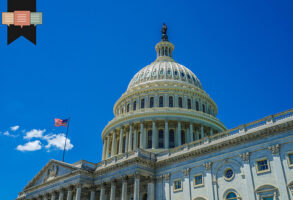
Published May 27, 2021
This week, Florida Governor Ron DeSantis signed into a law a provision that would penalize technology companies that de-platform political candidates. It has raised no small amount of objection from conservatives, who believe that the government meddling in the operations of a private company is tantamount to a repudiation of conservatism.
My Ethics and Public Policy Colleague, Henry Olsen, has a different take on the bill’s significance. Rather than seeing the bill as opposed to liberty, Olsen argues that its provision protects and even enhances political speech. I want to quote from just a small section of his editorial:
Social media is an important, if not the most important, realm in which political debates are conducted today. As a result, access to social media is essential to any entity seeking to influence those debates. When a network denies someone access, it is significantly hampering the ability to successfully engage in political debate. That alone weighs heavily in favor of ensuring access is not unfairly or arbitrarily restricted or denied.
I find this compelling, and it offers just a brief moment for Christians to think about the relationship of rights and goods to political order. Fundamentally, for us as Christians, it helps us wrestle with the tensions of creating a political order that does not descend into tyranny while not birthing a form of liberty that deforms into licentiousness. It gets to the heart of how we think about what liberty is, what it is there for, and the proper domain of political authority (Rom. 13:1-7).
Bluntly, the point of liberty is not liberty itself. The point of liberty is to obtain an end or a good conducive to human flourishing and the common good. Rights are legal enactments used to protect the faculties that allow us to achieve rightful ends. But, of course, we know that persons have differing conceptions of the good. Fair. But to say that the architecture of liberty should allow for people to conceive of the good incorrectly does not mean that we value liberty for pluralism’s sake alone, but rather, in the effort to obtain a true end, a constitutional design born of prudence allows for individuals to exercise their liberty wrongly. And people can exercise their liberty wrongly up until there’s a demonstratively grave threat to public health or public safety (i.e., manifestations of the “common good”). Even here, we know that rights are not “absolute” in the strictest sense. You cannot yell “fire” in a crowded movie theater because that has been determined to be an undermining of public safety. The task of wise government is to decide what lines necessary to the common good cannot be crossed by appealing to the naked assertion of “rights.”
When Florida restricts the behavior of Twitter, it is doing so because it believes the goods of political speech and political debate advance a common good and thus outweighs the absolute rights of Twitter to do whatever it wants. Because Twitter is a massively influential communication platform, its operation should be used to bolster speech and debate, not restrict it at the whim of an oligarchy. It is not compelling speech inasmuch as it is forcing a speech platform to broadcast views of candidates that the government deems as essential for public order and public knowledge (as it does in other platforms as Olsen’s essay makes a point of noting).
Twitter has rights as a corporation. Of course.
Rights are good, but rights are defined against common interests and common goods. But rights can be exercised, George Will said in Statecraft as Soulcraft, “up to a point.” When we think about Florida’s law, we should think about how balancing competing rights serve the overall good. Florida has determined that the good of political debate and the knowledge necessary to make informed decisions about a candidate’s reasonableness trumps certain rights of a private company. This is not tyrannical or an undermining of the First Amendment, but an enactment that helps us think about why we have political order at all—to achieve goods necessary for all to flourish.
If we have no concept of the good (even if modestly consented to) behind our rights, we do not have a nation but only a loosely organized band of autonomous agents. Rights, as they are devised, should aim at goods, which then inform the exercise of such rights. When we think about a political order workable for all, it means that government will have to balance the rights claims of all parties.
The tension that Christians need to wrestle with is not dispensing with either procedural rights or substantive goods, but understanding how rights serve the good and under what conditions competing rights claims yield to particular goods, in this case, the good of knowledge and political discourse. There is no easy formula here. It is messy and is why Christians must think carefully about the responsibilities of a healthy social order.
A few years ago, my friends Ryan T. Anderson and Robert P. George authored an important essay at National Affairs arguing along the same lines. I want to share just a short summary of their essay here:
Civil liberties such as freedom of speech and private property rights are not abstract absolutes that spring forth directly from human nature. They are political rights that are justified by — and thus inherently limited by—the demands of human well-being and the common good. Political communities have structured speech rights and property rights in various ways precisely with an eye to structuring and limiting political power to best — or at least adequately — promote human well-being and the common good. To see the ways in which speech and property can both contribute to and hinder the flourishing of people requires an understanding of human nature and human flourishing. It also requires an understanding of human fallibility — to see the ways in which fallen human beings can use and abuse governmental authority to promote or undermine the common good.
Andrew T. Walker is a Fellow at the Ethics and Public Policy Center










